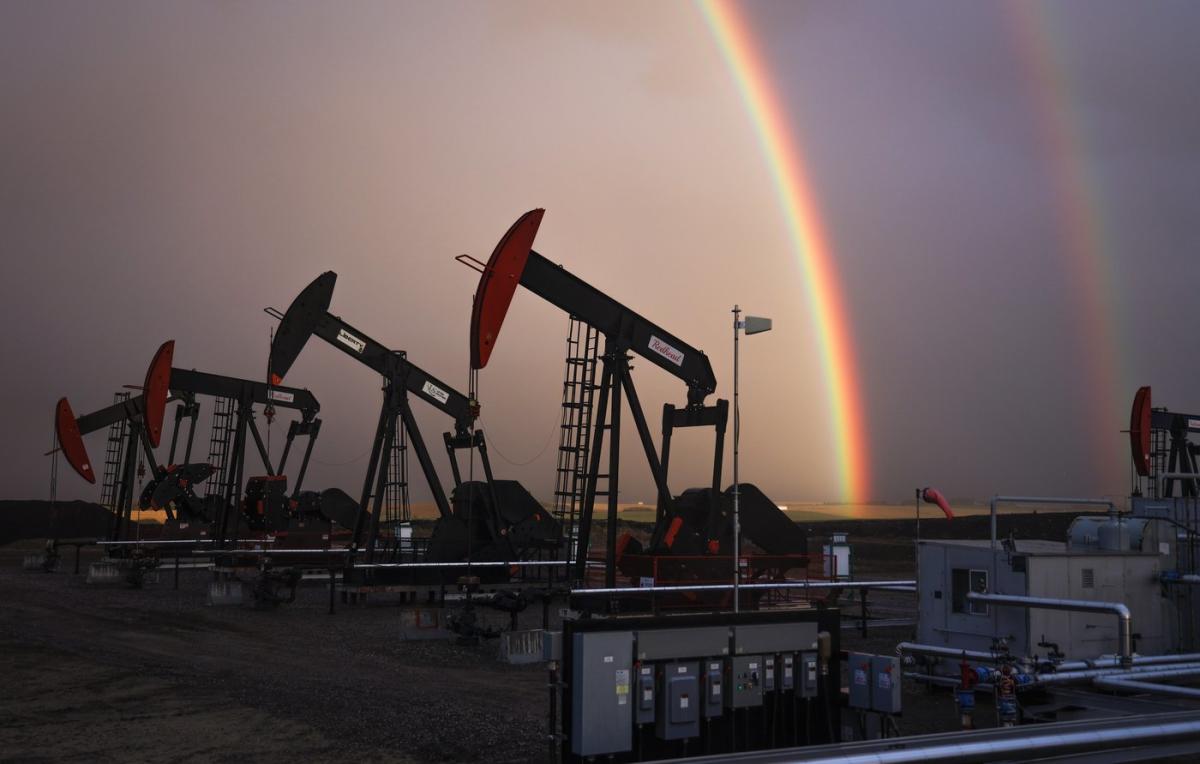EDMONTON — Observers are criticizing Alberta Energy Minister Brian Jean’s suggestions on how the province might clean up its thousands of abandoned oil wells, saying they favour industry and lack input from the public.
“Albertans are owed a better explanation than they have received so far about why this is necessary,” said Martin Olszynski, a professor of resource law at the University of Calgary.
Jean’s department is opening consultations on how to deal with Alberta’s nearly half-million oil and gas wells, two-thirds of which are not producing. Estimates of the potential cost vary wildly into the hundreds of billions of dollars.
In an interview, Jean suggested that although it’s not his preferred solution, some form of public assistance may be needed to clean up the mess despite industry’s legal obligations. He also suggested municipalities may have to take a haircut on their tax levies and that industry’s regulatory burden may need to be lightened.
But Olszynski said many energy companies are thriving. Any kind of a publicly financed bailout would raise serious questions, Olszynski said.
“There is no rational explanation for this support when you realize this industry is not a monolith. In the absence of a better explanation, Albertans are properly left to wonder what’s going on.”
Katie Morrison of the Canadian Parks and Wilderness Society said using public resources on the problem doesn’t address how it came to be in the first place.
“We can look at the short of what needs to be done immediately, (but) we also need to be looking at how do we prevent this. I don’t see anything in what (Jean’s) been talking about so far that’s going to prevent the situation from happening over and over.”
Rural Municipalities of Alberta president Paul McLauchlin said municipal taxes are well down the list of a well owner’s expenses and that 94 per cent of companies pay their taxes just fine.
“This narrative that (reducing) municipal taxes is what’s going to save the industry is a completely ridiculous notion,” he said.
He said business groups such as the Alberta Enterprise Group — once headed by now-premier Danielle Smith — have been lobbying for municipal tax reductions for years.
“The government’s going to do this on the backs of rural Albertans,” McLauchlin said. “Rural MLAs need to speak up.”
Opposition New Democrat energy critic Nagwan Al-Guneid said reducing environmental liabilities for energy companies with public resources amounts to breaking the law.
“It is unacceptable to use public money to clean up the legal obligations of companies to clean up the environmental damage they cause,” she said.
Olszynski also questioned Jean’s statement that the Alberta Energy Regulator’s footprint is too large. He pointed out the province’s auditor general found in a January report that the regulator underestimated cleanup liabilities and didn’t have a good handle on pipeline reclamation or the state of Alberta’s 59,000 pieces of energy infrastructure.
“It’s hard to square the auditor general’s concerns with the idea of a lighter regulatory burden.”
If anything, the regulator’s reach should be stronger, said Al-Guneid.
“I think we have great regulations,” she said. “They’re not being enforced.”
Both Olszynski and Morrison criticized the lack of public input in Jean’s consultations.
“It’s often that (this government) looks at the industry perspective and the economic perspective but not at the whole picture,” Morrison said.
Olszynski said leaving the public out of such discussions is how Alberta wound up with such a large liability in the first place.
“Surely, by now, you would think maybe we should bring the public in.”
Richard Wong of the Canadian Association of Petroleum Producers said government moves have helped operators reduce the inventory of inactive wells by 18,000 from 2018 to 2023. The overall percentage of inactive wells has fallen from 21 to 17 over the last four years.
“While there is more to be done to further accelerate the process for well closures, (the association) is looking forward to working with other stakeholders on potential regulatory, policy and fiscal measures that may be needed to address the challenges in regions of Alberta with mature oil and gas-producing assets through the province’s mature asset strategy consultations,” Wong wrote in an email.
This report by The Canadian Press was first published Sept. 17, 2024.
Bob Weber, The Canadian Press

